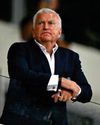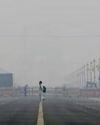
It was a slowburn consequence of the South Korean elections in April that produced a parliament in opposition to the president, then in power for two and a half years, effectively stymying the intentions of both parties.
At the micro level, there was a clutch of scandals relating to the president’s wife that were already weakening her husband’s position. Then, at the macro level, South Korea’s position beside an unpredictable North Korea apparently cosying up to Russia. Add these two elements together and it is possible to see, in retrospect, that the components of an emergency were already in place.
For most of the world, though – its Western parts, in particular – this was indeed a crisis that came out of nowhere for the simple reason that South Korea was seen as an admirably still point in both a difficult region and a frantically turning world. With shooting conflicts showing little sign of ending in Ukraine and the Middle East, the new rebel advance in Syria, and the continuing horrors of Sudan’s civil war, there was plenty more for the world to worry about than any gathering political tensions inside South Korea.
Its democracy has been both functional and stable since the 1980s. It was living peaceably beside the erratic and sometimes panic-stricken North, not allowing itself to be provoked. The Korean Demilitarised Zone separating the two – which could be one of the highest points of tension in the world – is, give or take a very few isolated incidents, a bizarre haven of calm.
This story is from the December 05, 2024 edition of The Independent.
Start your 7-day Magzter GOLD free trial to access thousands of curated premium stories, and 9,000+ magazines and newspapers.
Already a subscriber ? Sign In
This story is from the December 05, 2024 edition of The Independent.
Start your 7-day Magzter GOLD free trial to access thousands of curated premium stories, and 9,000+ magazines and newspapers.
Already a subscriber? Sign In

Fernandes saves ponderous United with extra-time goal
A stray punch got the battle of Britain going, but it took the right boot of Bruno Fernandes to decide it.

Keys overcomes Swiatek power in semi-final thriller
Tennis has seen its fair share of mesmerising performances.

RFU chief executive vows to stay despite bonus row
A defiant Bill Sweeney has vowed to continue as chief executive of England's Rugby Football Union (RFU) until the 2027 Rugby World Cup, even as he faces a revolt within the game over his tenure.

Canelo vs Crawford is the super fight with a twist
Mexican idol and US star set for September meet as fight fixer Turki Alalshikh strikes again,

Consumer confidence in economy falls to new low’
Consumer expectations for the economy have plunged as the government faces continued pressure over public finances.

SLAVE TO THE BEAT
On 'Eusexua', her defiantly weird paean to the Prague rave scene, FKA twigs bends vital new electronic shapes, writes Helen Brown, while rapper Central Cee's debut delivers

Think kink: the distinctions between BDSM and abuse
Olivia Petter talks to sex educators about what differentiates a consensual sexual practice from abusive behaviour, and why it's so crucial for partners to understand these polarities

Air pollution crisis in focus ahead of Delhi's election
Toxic air in India’s capital, population more than 33 million, has become a key political issue,

Lost Tina Turner track casts light on her return to fame
A surprise treasure has been unearthed from Tina Turner's vaults: the previously unheard track \"Hot for You, Baby\", which was intended for use on her fifth solo album, Private Dancer.

Could Britain really join a European customs union?
Europe's new trade official responsible for post-Brexit negotiations has said a \"pan-European [customs] area\" is something the EU could consider as part of \"resetting\" relations between the UK post-Brexit and the EU.